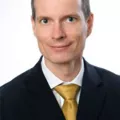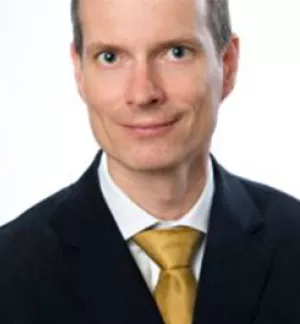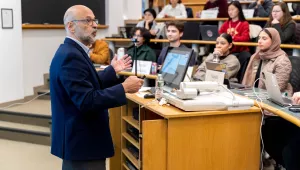Abstract
The present study targets a specific actor group in the issue domain of sustainable development. That is representatives of the financial industry, particularly those managing the increasing amount of pension resources that are accumulated in developed economies. By setting this focus, this study complements other research in the Global Environmental Assessment Project at Harvard’s Kennedy School, which focuses mainly on the use of global change and sustainability assessments in public policy.
Without being the topic of much public debate, pension funds control a significant part of the economies in many developed countries by their stock holdings. In principle, they are an essential institution for making large corporations accountable to the public, whose pension resources are invested in these corporations. By definition, pension funds have to take a long view with regard to investment strategies. This opens the possibility for them to become major advocates for sustainability strategies in the private sector.
Indeed, sustainability criteria are already integrated to some extent in many asset management policies of pension funds, and it can be expected that sustainable asset management is a high growth industry. The present work studies current practices of integrating sustainability aspects into the management of pension resources, and aims to understand the mindsets and expectations of professionals active in this field. Understanding better their framing of the issue and their expectations for future developments is essential in getting a grip on trends in this part of the investment industry. In order to study the influence of different cultural traditions, market conditions, and histories in the field of responsible investment, interviews were conducted with investment professionals on both sides of the Atlantic.
Strategies employed by pension fund managers in integrating sustainability aspects into asset management can be distinguished into the two approaches of ‘selective investment’ and ‘engagement.’ Strategies by external investment experts working on contracts for pension funds can be differentiated according to the additional dimension of ‘standardized’ versus ‘customized’ products and services. In these different activities, actors in the investment field use sustainability information and assessments in different form and from different sources. We found that currently, mainly assessments produced by commercial service providers are used. While academic researchers are sometimes used as personal points of reference, assessments generated by academic sustainability science are of very limited use to investment actors. We study reasons for this, mainly connected to transparency and saliency of academic sustainability assessments, and discuss how this situation could be improved.
This GEA working paper presents parts of the empirical material we collected in this study. A more concise and systematic analysis of our findings has been published as B. Kasemir, A. Süess, and A.J.B. Zehnder. 2001. “The Next Unseen Revolution – Pension Fund Investment and Sustainability.” Environment 43(9): 8-19.
Kasemir, Bernd. “Sustainability Information and Pension Fund Investment.” Environment and Natural Resources Program, Belfer Center, September 1, 2002
The full text of this publication is available via Environment and Natural Resources Program, Belfer Center.




